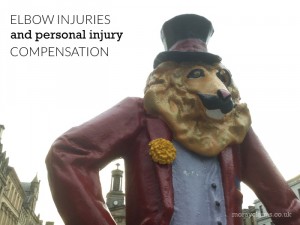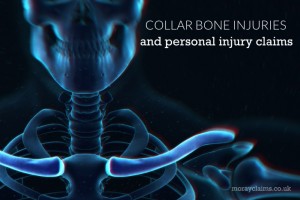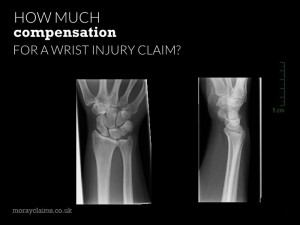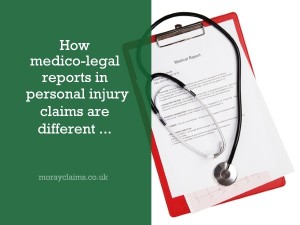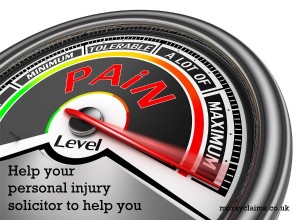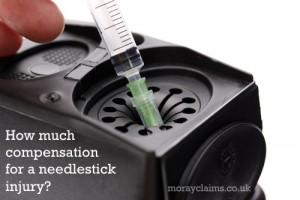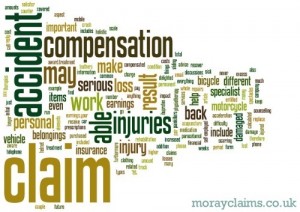The band, Elbow, reportedly got their name because of evidence that it is “the loveliest word in the English language”. The Singing Detective by Dennis Potter was a BBC television drama, which first aired in 1986. Mystery writer, Philip E. Marlow, is the main character. Through the pain of his skin condition, psoriatic arthropathy, and the associated fever, Marlow’s imagination runs riot while he is hospitalised with lesions and sores over his whole body – and he comes up with this escapist adventure about a detective. According to Marlow, in a scene from The Singing Detective, “E-L-B-O-W” is the loveliest word not only because of the sound it makes in the mouth but also because of the shape it makes on the page. The elbow joint is something which adds to the distinctive shape of the human body. A reasonable amount of twisting of the lower arm is made possible by the design of the elbow joint. Also, our ability to move the forearm and hand towards and away from the body Continue Reading
Collar Bone Injuries and Personal Injury Claims
According to Guinness World Records, some of the records broken most often include: Most apples dooked in one minute; Longest DJ Marathon; and Heaviest item lifted on the strength of glue alone. They mention that another frequently-broken record is that of Oldest living person – though the oldest recorded person ever remains French supercentenarian, Jeanne Louise Calment, who was 122 years and 164 days old when she died in 1997. If you look for discussion about the issue of “world records which are broken most often” on internet forums, “world’s youngest person” comes up a lot – that’s one we all held at one point, however briefly. The question “what gets broken most frequently?” comes up in relation to bony injuries when we’re looking at personal injury claims. Which bone in the human body is most likely to get broken? One serious contender for most-commonly-broken-bone is the collar bone or clavicle. In this article, we will take three angles on the collar Continue Reading
Ankle Injury Claims
A well-worn piece of writing advice says that everything reads better – and more memorably – if it is presented in groups of 3. Following the “Rule of 3” could mean: having three brief sentences in succession; using three friendly, joyful (but mysterious) adjectives to describe something; or limiting your lists to three bullet points (!) The ankle should be off to a good start in this context, given that there are 3 main bones in the ankle region. These are the talus – in the foot – and the tibia and fibula (in the leg). In this article, we are going to have a look at ankle injuries. Going back to first principles, we’ll start by defining what we mean by the ankle. Secondly, we’ll consider what are the most common types of ankle injury and their consequences. Finally, we will discuss the factors which affect the valuation of ankle injuries and the levels of compensation awards which tend to apply. 1. What do we mean by the ankle? It may seem an obvious question with Continue Reading
If You Are Off Work After An Accident What Rights Do You Have To Receive Pay (or other benefits)?
The Telegraph newspaper reported in January 2014 about a doctor at Barts Hospital in London who had erroneously received a “banding supplement” of £4,000 per month for on-call duties. This went on for more than two-and-a-half years, with the incorrect payments totalling £126,000. Overpayments of wages can occur in a variety of ways, including genuine payroll errors and miscalculation of commission/bonus schemes. According to the report, the £126,000 mistake (which was the most expensive of many) was to be resolved by the doctor paying it back at £500 per month. That would take over 21 years. While overpayments of wages can and do occur (as seen above), where you’ve been injured and are off your work as a result, you’re much more likely to be experiencing an underpayment of wages. The negative financial consequences of being injured in an accident can be significant. What steps can you take to make sure you maximise your income in the aftermath of an accident which leaves you Continue Reading
Do you have a compensation claim for a minor injury?
Caffeine is the most widely-consumed psycho-active substance in the world. By ‘psycho-active’, we mean that it has effects on the central nervous system such as improving energy levels, increasing alertness and, in some people, elevating their mood. Many substances are attractive to us partly because they contain caffeine. If you search online using the phrase “tea has more caffeine than coffee”, you will get about 835,000 results. The wording of the search reflects a commonly-held conception: that tea works better than coffee as a caffeine-delivery system. But is that correct? Studies have shown that tea leaves have more caffeine than coffee beans. But that’s not how things finish up in the cup. The main difference between tea and coffee is how much of it gets leeched into the hot water used to make the drink. In fact, you end up with about twice as much caffeine in a cup of coffee as in a cup of tea. It’s all about surface area: coffee beans get ground up, so more of the Continue Reading
Wrist Injury Claims
Elgin’s Dr Gray’s Hospital takes its name from Alexander Gray. He was born in Elgin but died in India in 1807, having spent over 20 years working as a surgeon for the East India Company. He had amassed quite a fortune and he bequeathed the bulk of his estate to his native town. The sum of £20,000 (probably equivalent to more than £1 million today) was allocated “for the establishment of a hospital … for the sick and the poor”. Gray’s next of kin contested the will and it was not until 1814 that a court declared the money to be free for use to buy a plot of ground on the west side of the town. Building went ahead from the following year and the (then, 30-bed) hospital opened on 01 January 1819. 1814 was an important year for the future practice of medicine in Moray but it was also an important year in the wider medical world. 1814 was also a significant year in relation to the diagnosis and treatment of wrist injuries. In 1814, Abraham Colles (1773–1843), an Irish surgeon who Continue Reading
Can You Get 100% Contributory Negligence?
As a chocolate lover, my taste is more for milk chocolate and white chocolate than for dark chocolate. If dark chocolate is married with another flavour, such as mint, I’m a big fan but, on its own, I’ll always prefer the other varieties of chocolate, if I can get them. With 100% dark chocolate, it means that all the ingredients have come from the cocoa bean. 100% dark chocolate is not to everyone’s taste because of its intense bitterness. In the world of personal injury claims, an area where ‘100%’ could leave an intensely bitter taste in your mouth is in relation to contributory negligence. What is contributory negligence? In the usual case, contributory negligence is where it’s accepted by the other party or their insurers that you should get some compensation for your losses. The catch is that they say it was partly due to your own fault that you got injured – so your full compensation should be reduced by a percentage to reflect your share of the blame. In Continue Reading
Medical Reports in Personal Injury Claims
If you have a medical problem which you have not been able to resolve yourself, your GP may refer you for a specialist opinion from a consultant. Your GP writes a referral letter and you will receive an appointment for a clinic at a hospital in due course. At the clinic, you may see the consultant or a more junior doctor. You have to rely on how well you can understand what you are told at the consultation. The doctor will write to your GP as a result of the appointment, which will be a sort of “report”. You will not automatically get to see that letter. It can be difficult to get a clear idea of your diagnosis, prognosis and any further treatment proposed. How personal injury claim medical reports are different In the context of a personal injury claim, medical reports are different. As part of most personal injury claims, your solicitor will refer you at some point for an expert opinion from a specialist such as a consultant. If your injury includes, say, a bone Continue Reading
Jury Trial Risks Highlighted By Dog Bite Case
New Year’s Day in Scotland is a time when families get together to eat, drink and celebrate. Margaret Ferguson went to such a gathering, at her brother-in-law’s house in Dundee, on 01 January 2011. She ended the evening with a serious injury to her face: a full thickness laceration of the left side of her upper lip, extending to and involving the corner of her mouth. Over several months, she went on to need several surgical procedures. The injury left her with permanent scarring. Dog bite The cause of her injury was a bite by her brother-in-law’s Scottish Terrier, Dougal. The dog was nearly 10 years old and suffering from arthritis. As to Dougal’s character, he was “by all accounts, a very friendly good-natured little chap.” So why did he bite Mrs Ferguson? There was a dispute about the circumstances. Mrs Ferguson’s version of events was that, while sitting on the sofa, she had turned round to speak to her husband. At that point, Dougal had suddenly jumped forward and Continue Reading
22 Injury Questions To Answer So You Maximise The Value Of Your Claim
If you have been injured in an accident and are making a claim for compensation, your solicitor needs as much information as possible about your injuries and their consequences so that the full extent of your claim is understood and you can be properly compensated. Most solicitors specialising in personal injury work will have a system of questionnaires or standardised questions to make sure, as far as possible, that no issues are left unexplored. We hope that, by highlighting the following matters, it will help you to understand the sort of issues which could be crucial in your particular circumstances. The injury questions to answer so you maximise the value of your claim will be different in each case. It is unlikely that all of the questions will be relevant to you, but many of them will be. We hope that at least one or two of them might make you think about things you had not considered before now. Injury questions Do you still have any pain or discomfort or have Continue Reading
How much compensation for a needlestick injury?
“I had finished cleaning the floor and was just doing a final check before going for my break. I noticed I had missed some scrunched up toilet paper lying on the floor in one of the cubicles. As I picked the papers up with my right hand, I suddenly felt a burning pain between my index finger and my thumb. When I looked at my hand, I could see there was a needle which had pierced my skin there. It must have been hidden in the bundle. I was stunned and felt physically sick. I was so shocked I had to sit down for 10 minutes until I got my wits back.” Needlestick injuries are one type of “sharps” injury. A sharps injury happens when a needle, blade (e.g. a scalpel) or other medical instrument penetrates the skin. It's a frightening injury because even a pinprick can have such significant consequences for your health. Who is at risk? This type of injury is an occupational hazard if you work in the health or social care sector, especially for those who directly handle sharps. In our Continue Reading
What Can I Claim Personal Injury Compensation For?
The answer to the question "What can I claim personal injury compensation for?" is something which is bound to influence you in deciding whether or not it is even worth your while bothering with a claim at all. If you are injured in an accident and need to make a claim for compensation, there are various possible elements which can make up your claim as a whole. We tend to refer to these as “heads of claim”. Also note that, in this context, “damages” is another word for “compensation”. The way to think about it is that any loss you have suffered as a result of your accident can probably be compensated. Here is a list of some of the most common elements found in personal injury claims. Your pain and suffering The level of compensation you get for your injuries is calculated on a sliding scale. So, the more serious and long-lasting your injuries, the greater the amount of compensation you will receive. Multiple injuries will increase the value of the claim here, though Continue Reading
